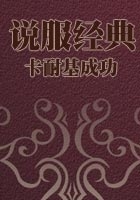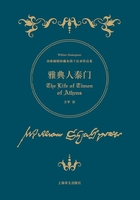Hyde had been true to his Tory opinions, and had steadily supported the cause of hereditary monarchy. But Godolphin, anxious for quiet, and believing that quiet could be restored only by concession, wished the bill to pass. Sunderland, ever false, and ever shortsighted, unable to discern the signs of approaching reaction, and anxious to conciliate the party which he believed to be irresistible, determined to vote against the court. The Duchess of Portsmouth implored her royal lover not to rush headlong to destruction. If there were any point on which he had a scruple of conscience or of honour, it was the question of the succession; but during some days it seemed that he would submit. He wavered, asked what sum the Commons would give him if he yielded, and suffered a negotiation to be opened with the leading Whigs. But a deep mutual distrust which had been many years growing, and which had been carefully nursed by the arts of France, made a treaty impossible. Neither side would place confidence in the other. The whole nation now looked with breathless anxiety to the House of Lords. The assemblage of peers was large. The King himself was present. The debate was long, earnest, and occasionally furious. Some hands were laid on the pommels of swords in a manner which revived the recollection of the stormy Parliaments of Edward the Third and Richard the Second. Shaftesbury and Essex were joined by the treacherous Sunderland. But the genius of Halifax bore down all opposition.
Deserted by his most important colleagues, and opposed to a crowd of able antagonists, he defended the cause of the Duke of York, in a succession of speeches which, many years later, were remembered as masterpieces of reasoning, of wit, and of eloquence. It is seldom that oratory changes votes. Yet the attestation of contemporaries leaves no doubt that, on this occasion, votes were changed by the oratory of Halifax. The Bishops, true to their doctrines, supported the principle of hereditary right, and the bill was rejected by a great majority.22The party which preponderated in the House of Commons, bitterly mortified by this defeat, found some consolation in shedding the blood of Roman Catholics. William Howard, Viscount Stafford, one of the unhappy men who had been accused of a share in the plot, was impeached; and on the testimony of Oates and of two other false witnesses, Dugdale and Turberville, was found guilty of high treason, and suffered death. But the circumstances of his trial and execution ought to have given an useful warning to the Whig leaders. A large and respectable minority of the House of Lords pronounced the prisoner not guilty. The multitude, which a few months before had received the dying declarations of Oates's victims with mockery and execrations, now loudly expressed a belief that Stafford was a murdered man. When he with his last breath protested his innocence, the cry was, "God bless you, my Lord! We believe you, my Lord." A judicious observer might easily have predicted that the blood then shed would shortly have blood.
The King determined to try once more the experiment of a dissolution. A new Parliament was summoned to meet at Oxford, in March, 1681. Since the days of the Plantagenets the Houses had constantly sat at Westminster, except when the plague was raging in the capital: but so extraordinary a conjuncture seemed to require extraordinary precautions. If the Parliament were held in its usual place of assembling, the House of Commons might declare itself permanent, and might call for aid on the magistrates and citizens of London. The trainbands might rise to defend Shaftesbury as they had risen forty years before to defend Pym and Hampden. The Guards might be overpowered, the palace forced, the King a prisoner in the hands of his mutinous subjects. At Oxford there was no such danger. The University was devoted to the crown; and the gentry of the neighbourhood were generally Tories. Here, therefore, the opposition had more reason than the King to apprehend violence.
The elections were sharply contested. The Whigs still composed a majority of the House of Commons: but it was plain that the Tory spirit was fast rising throughout the country. It should seem that the sagacious and versatile Shaftesbury ought to have foreseen the coming change, and to have consented to the compromise which the court offered: but he appears to have forgotten his old tactics. Instead of making dispositions which, in the worst event, would have secured his retreat, he took up a position in which it was necessary that he should either conquer or perish. Perhaps his head, strong as it was, had been turned by popularity, by success, and by the excitement of conflict.
Perhaps he had spurred his party till he could no longer curb it, and was really hurried on headlong by those whom he seemed to guide.
The eventful day arrived. The meeting at Oxford resembled rather that of a Polish Diet than that of an English Parliament. The Whig members were escorted by great numbers of their armed and mounted tenants and serving men, who exchanged looks of defiance with the royal Guards. The slightest provocation might, under such circumstances, have produced a civil war; but neither side dared to strike the first blow. The King again offered to consent to anything but the Exclusion Bill. The Commons were determined to accept nothing but the Exclusion Bill. In a few days the Parliament was again dissolved.
The King had triumphed. The reaction, which had begun some months before the meeting of the House at Oxford, now went rapidly on.
The nation, indeed, was still hostile to Popery: but, when men reviewed the whole history of the plot, they felt that their Protestant zeal had hurried them into folly and crime, and could scarcely believe that they had been induced by nursery tales to clamour for the blood of fellow subjects and fellow Christians.















